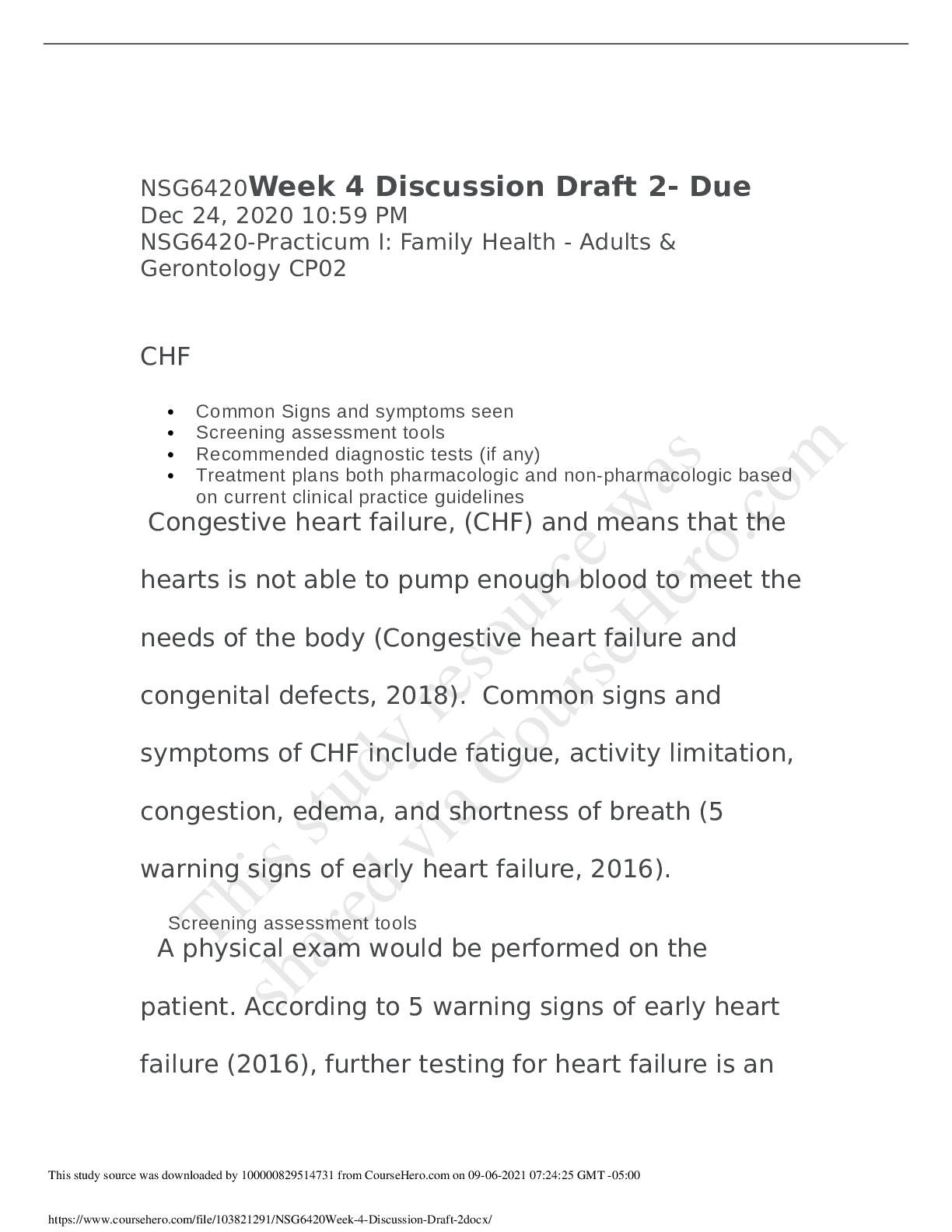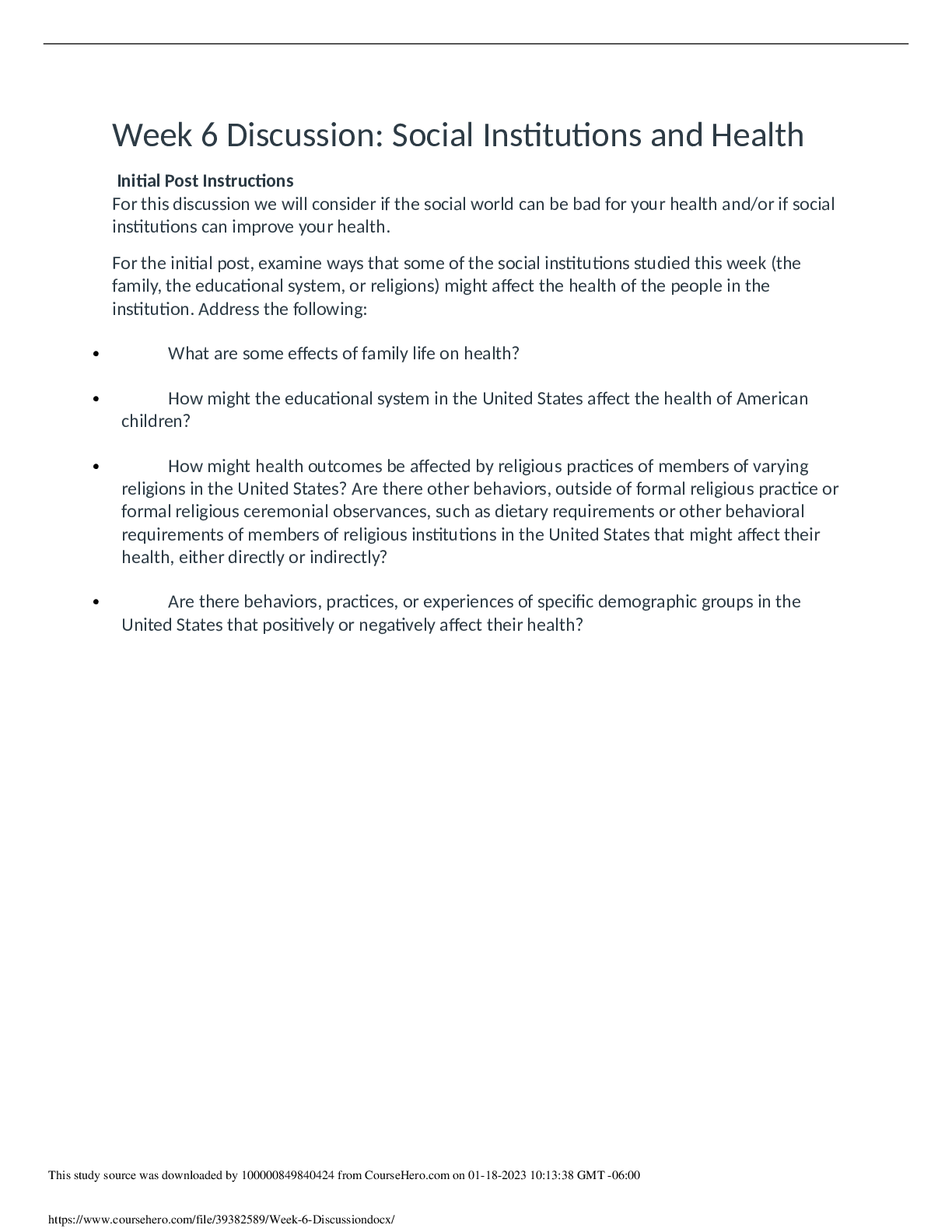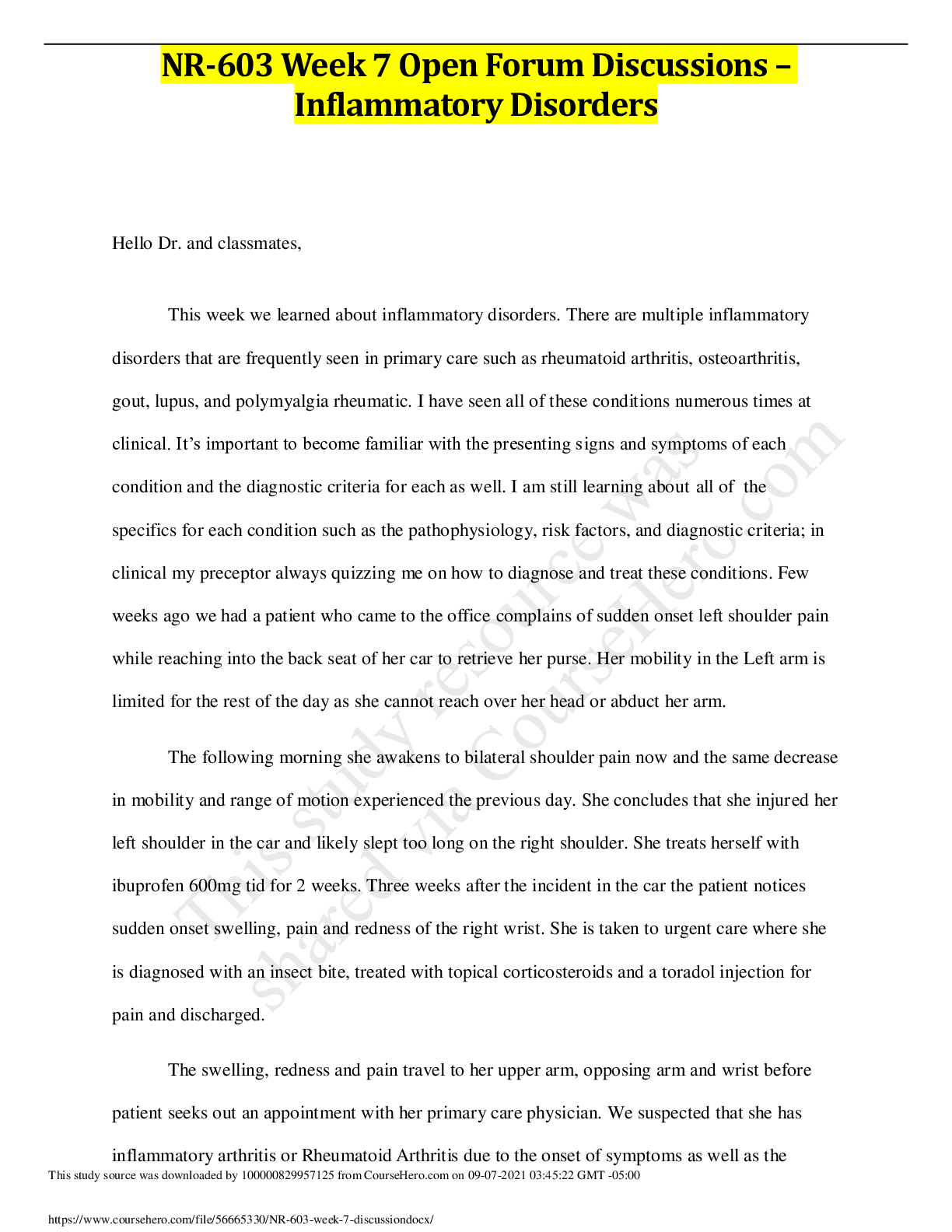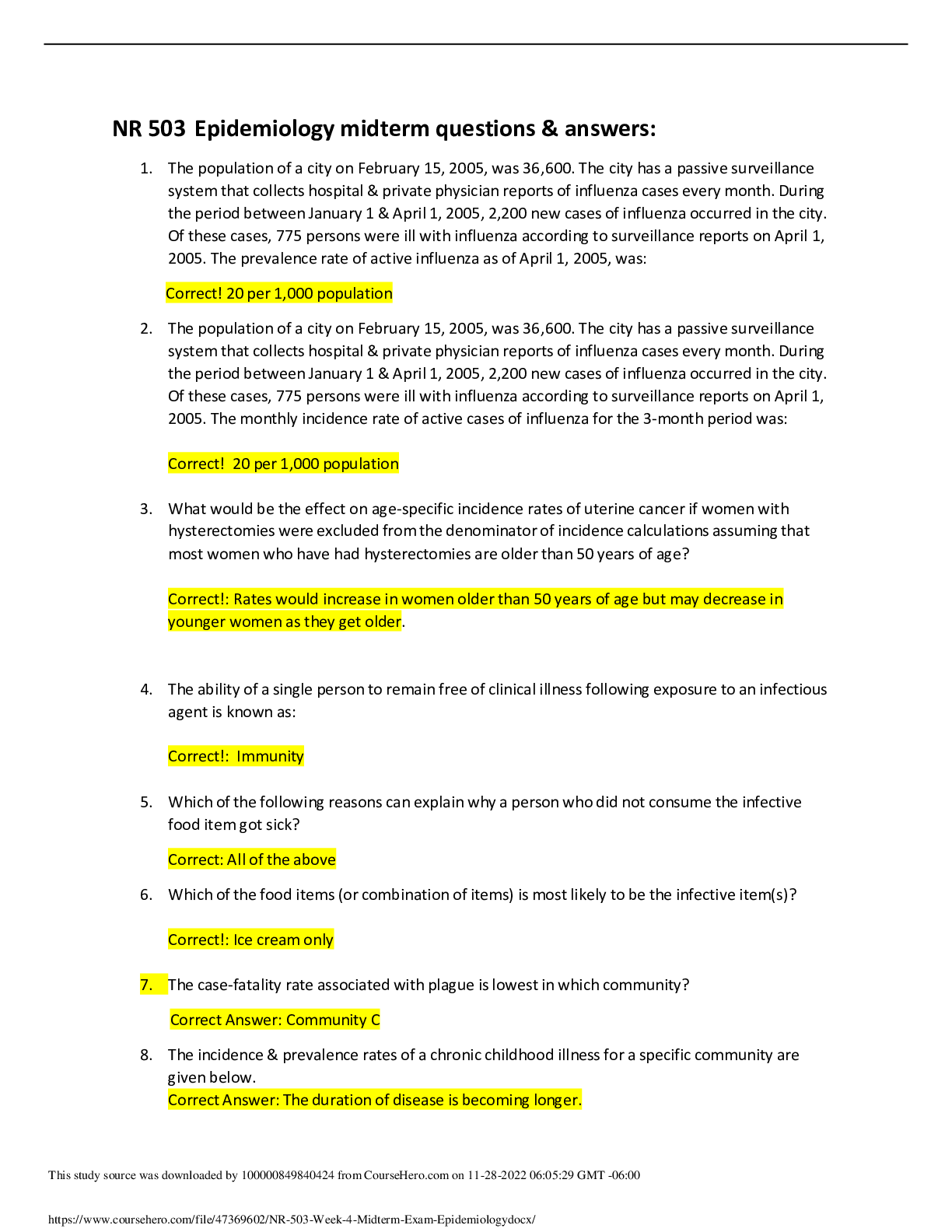*NURSING > DISCUSSION POST > NR508- week 3 discussion-Questions and Answers (All)
NR508- week 3 discussion-Questions and Answers
Document Content and Description Below
Mr. Russell is a 73-year-old male who presents to your clinic with complaints heart palpitations and light headedness on and off for the past 3 months. He has a history of hypertension and is curren... tly prescribed HCTZ. He also is complaining of heartburn and belching after a large meal. Vital Signs: B/P 159/95, Irregular HR 88, Resp. 22, Weight 99 kilograms (217 lbs) Lower extremities with moderate 3+edema noted in left leg, 2 + edema in right leg, ABD + BS, Neuro AOX3, Labs: NA 143mEq/L (135-145), CL 99 mmol/L (96-106) BUN 18mg/dL (7-20), Hbg 15 (13-17), Total cholesterol -TC 234 mg/dL (less than 200), LDL 137 mg/dL (less than 100), HDL 35 mg/dL (40-50), triglycerides 241mg/dL (less than 150). What are your treatment goals for Mr. Russell today? Address concerning vital signs of HTN, irregular HR, palpitations, edema, lab values, heartburn/belching, preventative measures and education. Electrocardiogram (EKG) initially to rule life-threatening arrhythmias that may alter course of treatment or that need to be addressed immediately and/or need cardiology consult. Wilken (2016) supports EKG’s to helpfully evaluate palpitations and considers potentially essential for diagnosis in a primary care setting. It is also the first test used for therapeutic decision making for progression and/or stabilization of HTN impact (Woo & Robinson, 2016) Address HTN using the JNC 8 guidelines for HTN, and addressing potentially complications of undiagnosed HF including peripheral edema. The JNC 8 guidelines recommend in patients greater than 60 years of age (Mr. Russell is 73), without diabetes or chronic kidney disease to have blood pressure reading less than 150/90 (Elam, 2017). Mr. Russell currently fits into Hypertension stage I due systolic BP 140-159 and diastolic BP 90-99 per the JNC 7 guidelines that were unchanged in the JNC 8 guidelines (Woo & Robinson, 2016). . Echocardiogram and doppler flow studies are needed for diagnostic purposes for suspicious HF and/or cardiac dysfunction will need to be scheduled as soon as possible in an outpatient setting (Woo & Robinson, 2016). The recommended guidelines from the American College of Cardiology and American Heart Association (ACCF/AHA) include laboratory values needed for HF that include renal function, complete blood count, urinalysis, serum electrolytes including magnesium and calcium, hemoglobin A1c, liver function tests, fasting lipid levels, BNP, troponin T, and thyroid stimulating hormones (Woo & Robinson, 2016). These values are for screening and diagnosis of HF and organ function. These tests should be completed day of office visit prior to medication administration. Identify lifestyle modifications and preventative measures that Mr. Russell can work towards that [Show More]
Last updated: 2 years ago
Preview 1 out of 5 pages

Buy this document to get the full access instantly
Instant Download Access after purchase
Buy NowInstant download
We Accept:

Reviews( 0 )
$8.00
Can't find what you want? Try our AI powered Search
Document information
Connected school, study & course
About the document
Uploaded On
Jul 17, 2021
Number of pages
5
Written in
Additional information
This document has been written for:
Uploaded
Jul 17, 2021
Downloads
0
Views
75

U.png)












